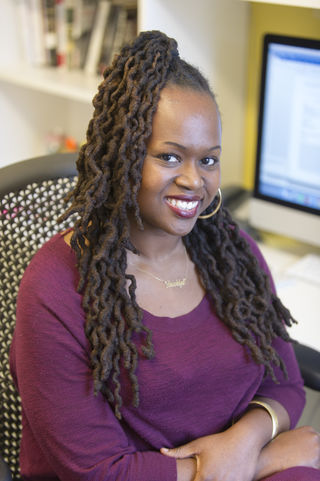
Education
Threats to Equity: White Supremacist and Colonial Logic
A conversation with Dr. Jamila Lyiscott.
Posted July 12, 2019

I had the pleasure of recently connecting with Dr. Jamila Lyiscott, Assistant Professor of Social Justice Education at the University of Massachusetts, Amherst and a Senior Research Fellow of Teachers College, Columbia University’s Institute for Urban and Minority Education (IUME).
We discussed her new book, Black Appetite, White Food, which "invites educators to explore the nuanced manifestations of white privilege as it exists within and beyond the classroom." I first met Dr. Lyiscott at Teachers College, Columbia University, where we both studied for our doctorate degrees. Personally, I have had so much love for her since then.
Dena: What motivates you to do the work and research that you do in education?
Dr. Lyiscott: I am most motivated by the brilliance I witness every single day in my community. It is heartbreaking to know that our brilliance does not play an integral role in shaping what education looks like in this country. It is disheartening to know that “access” really means that we have to align ourselves as closely to white middle class values to be fully regarded as intelligent or worthy. To this day, our hair, cultural practices, and language practices are still heavily policed, making it impossible for us to bring our full selves into the institutions that we spend so much of our lives navigating.
Dena: I totally agree and could relate to policing myself in order to be seen as "acceptable" in white spaces. Fortunately, in your most recent book, Black Appetite, White Food, you share helpful teaching practices and strategies to re-imagine a new education system, where educators reflect on white privilege and colonialism. Could you explain why that reflection is necessary—for the folks who need to know?
Dr. Lyiscott: White supremacist logic and colonial logic are the water that we swim in. It is hard to see the water that you swim in because it is the norm that sustains us and colors our perspectives. White supremacist logic will tell Black women that the natural hair that grows out of their head is “unprofessional.” Colonial logic is the brother of white supremacy; it will join in to enforce rigid institutional ramifications to “correct” or “save” us from the "barbarism" of attire and expression deemed unprofessional by white supremacy. If educators are not reflecting on how these two shape their perspectives, there is no hope for dismantling the subversive and pervasive threat of racial injustice.
Dena: Constantly being told that something is wrong with us can be so destructive to the Black spirit. I personally am still in recovery from internalized self-hate and constantly being told by people and policies that I am not enough. I have also found that my experience speaking out against white supremacy and colonialism makes me subject to bullying and further policing by white standards. For example, after my TED talk, “How Students of Color Confront Impostor Syndrome,” went live on YouTube, within a day, it was filled with hateful comments. I am curious not only how your book’s message has been received by readers, but also, what has been some of the notable push-back points as well as your counterargument?
Dr. Lyiscott: If I am being transparent, I do not give my focus, attention, or energy to people who are against the work. For me, as a Black woman, it is already very emotionally exhausting to do this work, and there are plenty of people who want to understand, who want the tools, who want the healing, who want to fight, but have no clue how. There are plenty who have long been on the front lines and need only like-minded people to stand alongside and sustain hope with them. My hands and heart are so full with the complexities of how to do this work with such people that I don’t even know what push-back is out there.
In terms of how the book has been received by the aforementioned groups: there has been a lot of love and affirmation. I have received a lot of messages to the effect that the book helps to name things that are hard to name and broaden perspectives in a head-on, unapologetic, and accessible way. I am humbled and grateful about the possibility of just a few lives being positively impacted.
Dena: That's super inspiring for me to hear—and models, for me, how to ignore the push-back for better well-being. Now, this is the question I ask everyone I interview. So, if you had to list three to five steps that we can take to get closer to equity in education, what would you list?
Dr. Lyiscott:
- Do the inner work of facing and working through internalized privilege and oppression.
- Do not confuse the presence of diversity with the substance of diversity. Work to integrate and sustain diverse cultural and linguistic practices in your work.
- Challenge your institution to undo racist practices and policies and to develop in ways that can truly sustain equity work so that people don’t have to hide or be siloed in order to fight for justice.
Dena: These are great! Thank you so much for sharing such wisdom with us.
If you all want to learn more about Dr. Lyiscott, please read her book and watch her TED talk. What will you do confront white supremacist and colonial logic in your practice, in your life?



